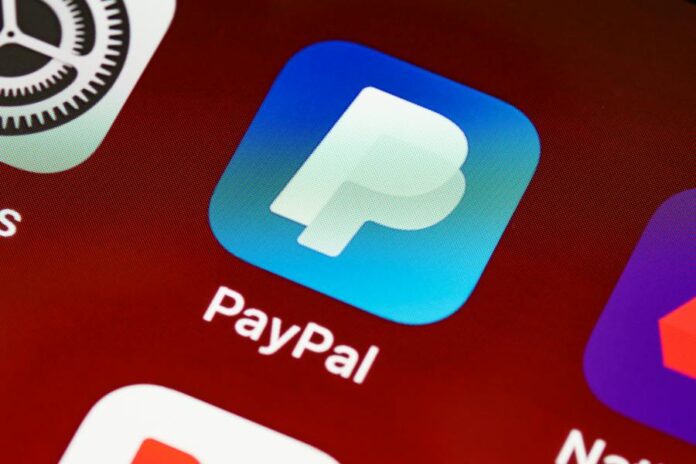The world of online payments has evolved significantly, and with it, the methods by which businesses and customers engage in transactions. One such method that has gained prominence is the PayPal Billing Agreement. This article delves into the intricacies of PayPal Billing Agreements, shedding light on what they are, how they work, and their significance in today’s digital economy. Whether you’re a business owner looking to streamline payment processes or a consumer seeking convenience, understanding PayPal Billing Agreements is crucial. This comprehensive guide explores the setup, benefits, challenges, and real-world applications of these agreements, ensuring you’re well-equipped to navigate the world of recurring payments with confidence.
What Is A PayPal Billing Agreement?
A PayPal Billing Agreement is a recurring payment arrangement between a customer and a business. It allows the business to automatically charge the customer’s PayPal account for goods or services on a predetermined schedule, such as monthly subscriptions. This streamlines payments, offering convenience for both parties while ensuring predictable billing. Customers can establish and manage these agreements, making online transactions more efficient and hassle-free.
Why Businesses Use PayPal Billing Agreements?
- Predictable Revenue: Billing Agreements provide a reliable stream of income, especially for subscription-based businesses, ensuring they receive payments on time without requiring customers to manually initiate each transaction.
- Reduced Churn: Automatic payments reduce customer churn rates since customers don’t need to remember to make payments, leading to higher customer retention.
- Convenience: Offering Billing Agreements enhances the customer experience, making it easier for customers to make regular payments without the hassle of manual transactions.
- Lower Transaction Costs: Processing recurring payments through Billing Agreements can be more cost-effective than handling individual transactions, as it reduces payment processing fees.
- Streamlined Operations: Businesses can automate the billing process, reducing administrative work associated with chasing payments and managing invoices.
- Flexibility: Billing Agreements can support various billing models, such as fixed or variable amounts and different billing frequencies, providing businesses with flexibility in their pricing strategies.
- Improved Cash Flow: With predictable income, businesses can better manage their cash flow and allocate resources more effectively.
- Enhanced Customer Relationships: By offering seamless and convenient payment options, businesses can improve customer satisfaction and build stronger relationships.
How To Sign Up For A Billing Agreement?
Signing up for a PayPal Billing Agreement can be done by customers who want to authorize recurring payments to a business. Here’s how to sign up for a Billing Agreement:
- Create A PayPal Account (If You Don’t Have One): Visit the PayPal website and click on “Sign Up” to create a PayPal account. Follow the prompts to provide your personal and financial information, including a valid email address and credit card or bank account details.
- Link A Payment Method: Log in to your PayPal account. Go to the “Wallet” or “Payment methods” section. Add a credit card, debit card, or bank account to your PayPal wallet if you haven’t already.
- Find The Business Offering A Billing Agreement: Visit the website of the business you want to set up a Billing Agreement with.
- Initiate The Billing Agreement Setup: On the business’s website, navigate to the payment or subscription page. Look for an option like “Set up a Billing Agreement,” “Subscribe,” or “Authorize Recurring Payments” and click on it.
- Log In To Your PayPal Account: You may be prompted to log in to your PayPal account if you haven’t already.
- Review And Confirm: Review the details of the Billing Agreement, including the billing amount, frequency, and terms. Confirm your consent to the recurring payments by following the on-screen instructions. You may need to click “Agree” or “Authorize.”
- Complete The Process: Once you’ve confirmed your consent, the Billing Agreement will be set up, and PayPal will send you a confirmation email.
- Manage Your Billing Agreements: You can view and manage your Billing Agreements within your PayPal account. Log in, go to the “Settings” or “Profile” section, and look for options related to “Billing Agreements” or “Automatic Payments.”
Benefits Of PayPal Billing Agreements
PayPal Billing Agreements offer several benefits for both businesses and customers:
- Convenience: Customers can set up automatic payments, eliminating the need to remember payment dates or manually initiate transactions, which streamlines the payment process.
- Predictable Billing: Businesses can rely on consistent and predictable revenue streams, especially for subscription-based services, making financial planning and budgeting easier.
- Reduced Churn: Automatic payments reduce customer churn rates as customers are less likely to cancel services due to missed payments or inconvenience.
- Enhanced Customer Experience: Billing Agreements provide a seamless and hassle-free payment experience, improving customer satisfaction and loyalty.
- Lower Administrative Overheads: Businesses spend less time and resources managing invoices, chasing payments, and handling billing-related inquiries, resulting in operational efficiency.
- Flexibility: Businesses can offer various billing models, including fixed or variable amounts and different billing frequencies, catering to diverse customer preferences.
- Cash Flow Management: Predictable income from Billing Agreements helps businesses manage cash flow more effectively and allocate resources efficiently.
- Security: PayPal employs robust security measures to protect payment information, reducing the risk of data breaches and fraud.
- Customer Control: Customers have the ability to manage and cancel Billing Agreements within their PayPal accounts, giving them control over their recurring payments.
Challenges And Considerations
While PayPal Billing Agreements offer numerous benefits, businesses, and customers should be aware of certain challenges and considerations:
- Customer Disputes And Chargebacks: Customers can dispute Billing Agreement transactions, leading to chargebacks. Handling disputes and providing clear documentation is essential to resolve such issues.
- Ensuring Transparency And Consent: It’s crucial for businesses to obtain clear and informed consent from customers before setting up Billing Agreements. Transparency about billing terms and cancellation policies is vital.
- Monitoring Billing Agreements: Businesses must regularly monitor Billing Agreements to ensure they are functioning correctly. Overlooking failed payments or technical issues can result in revenue loss.
- Cancellations And Modifications: Customers should have the ability to cancel or modify Billing Agreements easily. Failing to provide this option can lead to customer dissatisfaction and potential disputes.
- Payment Method Changes: Customers may update or change their linked payment methods. Businesses should have processes in place to handle such changes without disruptions to billing.
Tips For Businesses Using PayPal Billing Agreements
For businesses utilizing PayPal Billing Agreements, here are some essential tips to maximize the benefits and ensure a positive experience for both you and your customers:
- Provide Clear Billing Terms And Conditions: Ensure that your customers understand the terms of the Billing Agreement, including the billing amount, frequency, and any potential changes. Transparency builds trust.
- Offer Multiple Payment Methods: While PayPal is popular, some customers may prefer alternative payment methods. Offer a variety of payment options to accommodate different preferences.
- Maintain Open Communication: Regularly communicate with your customers regarding billing, service updates, and changes to the Billing Agreement. Use email notifications or in-app messaging to keep them informed.
- Responsive Customer Support: Have a responsive customer support team in place to address billing inquiries, resolve issues, and provide assistance with Billing Agreements.
- Streamline Cancellation And Modification: Make it easy for customers to cancel or modify their Billing Agreements through a user-friendly interface. Complicated processes can lead to frustration.
- Regularly Review Agreements: Periodically review your Billing Agreements to ensure they align with your current pricing and service offerings. Update agreements as needed to avoid confusion.
- Adhere To Legal Requirements: Comply with local and international laws and regulations related to recurring payments, privacy, and data security, such as GDPR and PCI DSS.
- Monitor Payment Success: Keep an eye on the success rate of Billing Agreement transactions. Address any issue with failed payments promptly to prevent revenue loss.
Final Word
In the world of online transactions, PayPal Billing Agreements offer businesses and customers a powerful tool for simplifying payments and enhancing financial predictability. However, success lies in the details—transparent communication, compliance with regulations, and responsive customer support are paramount. When used wisely, Billing Agreements can foster trust, convenience, and loyalty, benefiting both businesses and their valued customers. So, whether you’re a business owner seeking efficiency or a consumer embracing convenience, understanding and managing PayPal Billing Agreements can transform your financial interactions in the digital age.
FAQ’s
What Is A PayPal Billing Agreement?
A PayPal Billing Agreement is a recurring payment arrangement that allows businesses to automatically charge customers for goods or services on a predetermined schedule, such as monthly subscriptions.
How Do I Set Up A PayPal Billing Agreement?
To set up a Billing Agreement, log in to your PayPal account, link a payment method, and follow the prompts on the business’s website to authorize recurring payments.
Can I Cancel A PayPal Billing Agreement?
Yes, customers can easily cancel a Billing Agreement within their PayPal account settings. Businesses should provide clear instructions for cancellation.
Are PayPal Billing Agreements Secure?
Yes, PayPal employs robust security measures to protect customer data and financial information, making Billing Agreements a secure payment method.
What Happens If A Payment Fails In A Billing Agreement?
If a payment fails, PayPal will notify both the customer and the business. It’s important to address failed payments promptly to prevent service disruptions.











![What is Corruption? [The Global Problem & Top Corrupt Countries List] Government Corruption](https://www.moneytaskforce.com/wp-content/uploads/2019/08/Government-Corruption-100x70.jpg)
